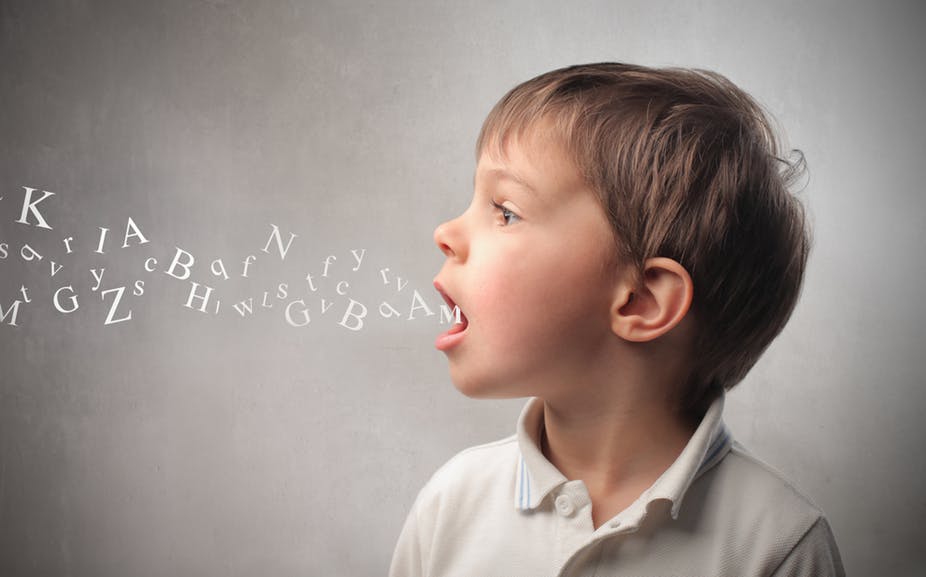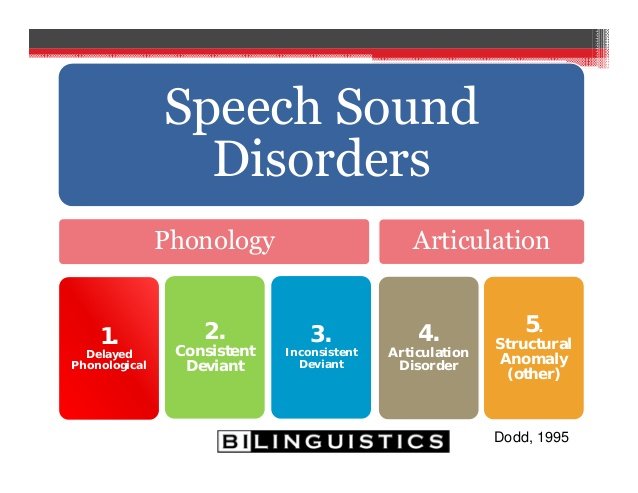INTRODUCTION
Speech is crucially important in human existence as invaluable means of expression and conveying of ideas. Speech is the audible, oral output of language. Every human being engages in speech though in different languages. Sometimes, people may have difficulties in speaking and this is referred to as speech impairment or defect. I will discussed speech impairments by providing the definitions of speech impairments,classification of speech impairments, causes and the educational implication of speech impairments.
Definition
A speech is the audible and oral output of language. Whenever there is defect in audible and oral output of language, speech impairments results.
Many scholar have attempted definition of speech impairment. The commonly accepted definitions are functional I'm nature. According to Telford and Sawrey (1977) speech is said to be impaired when the manner of speaking interferes with communication, when the person's manner off speaking distracts attention from what is said, or when the speech is such that the speaker himself is unduly self-conscious about his manner of speaking.

source
Classification of Speech Defects
Classifications of speech defect here will be based on the forms they take and causal factors. Thus, speech defects can be classified into, articulatory disorders, disturbance of the rhythm, voice disorders, delayed or retarded speech.
Disorder of Articulation
Disorder of articulation involves omission ("at" for "cat"), substitution ("gog" for dog") and distortion or addition ("furog" for "flog" or "heyo" for "hello") sounds. They may involve the mispronunciation of the entire word or words.
Some articulatory disorders are called immature speech (baby talk) since many children are observed to make such errors or mistakes in the early stage of language development. Children are able to properly articulate certain soundest different levels of development or age. For instance, some sounds such as p, b, m, and o are usually.the easiest sounds for children to articulate (Mecham, & Berko, 1960 as cited in Telford & Sawrey, 1977) and later acquired sounds are h, w, d, k, g, J, f, v, t, z, I, s, u, and r. Another form of speech defect among children if school age is lisping fault in speech in which sound of "s" is pronounced as "th" example, ("Sunday" for "thunje"), the frequency of this defect can decrease as children get older. But it's persistence beyond six years requires intervention measures.
Another common speech defect is Lalling -distortion if "r" and "L" sounds as in the case in some parts of Igbo land where people distort pronunciation of "rice" with "lice", "road" with "load", "ruler" with "Luler" etc
Delayed Speech
Children normally begin to speak markedly at different ages to the extent that it is difficult to set a specific age beyond which delay in speaking I'd exceptional. However, when a child of three or four years does not talk, it should become a matter if study. There are many causes of delayed speech which include deafness, developmental aphasia,mental deficiency, cerebral palsy etc.
Besides, some children do not learn to speak at the usually age due to lack of motivation to do so. Children with delayed speech may be normal and well -behaved and can make satisfactory adjustment without speaking. However, some of them can display patterns of deviant behaviours such as isolation from other people and some can seek close physical contacts with adults and inanimate objects. They may rub their bodies along the walls or on furniture, rub their face against toys, climb on laps and even snuggle up to the strangers.
Phonation:(Disorders of Voice Production)
Voice disorders consist of clear deviation in the loudness,pitch,quality, duration or flexibility of sounds. These disorders are difficult to correct in children mainly because the speech mechanism is still developing and the voice quality is changing.

source
Disturbance of Rhythm
Disturbance of rhythm include disorder such as stuttering, stammering and cluttering. Most authors do not differentiate among the. In accordance, the term stuttering shall be used here to cover the entire range of rhythmic disorders.
Stuttering is one of the commonest communication disorders. It is one if the principal forms of non-fluency. It is primarily a disturbance of the normal flow and rhythm of speech. It involves blocks, hesitations and prolongation and repetition of sounds syllables,words or phrases. It is frequently associated with muscular tension, rapid eye- blinking, irregularities of breathing and facial grimacing.
Phonological Disorder
Children with phonological disorder understand and are able to use a substantial vocabulary, but their speech sounds like blue comes out bu and rabbit sounds like wabbit. Such children have not learned later-acquired speech sounds.
Causes of Speech Impairment
Speech impairments are caused by various organic and functional (social and psychological) factors. Organic factors result from damage to any one of the severals cortical areas (brain). The organic causes include cleft palate, mal-development of other parts of the mouth and jaw, dental irregularities which include missing teeth, muscular paralysis if the larynx, tumors or ulcers in or around the larynx. Nasal obstructions can causes speech defects in people.
On the other hand, functional causes include failure to learn adequately the manner of speech, fixations, regressive patterns, general personality and emotional trauma.
Many speech specialists do not observe difference between organic and functional factors,hence Fact Sheet (2004) listed the causes of speech and language impairments to include hearing loss, neurological disorders, brain injury, mental Retardation, drug abuse, physical impairments such as cleft lip, vocal abuse or misuse, without reference to organic or functional dichotomy.
Educational Implication Of Speech Impairment.
As a matter of fact, all communication disorders carry the potential to isolate individuals from their social and educational surroundings. As a result of this, it becomes necessary to find appropriate and timely intervention, since many of the speech defects can cause difficulties in learning if they are not treated it outgrown as in some cases. Children learn language and communication skills before the age of five. But when children have muscular disorders, hearing problems, or developmental delays, their acquisition if speech and related skills is often affected.
To this effect, speech -language pathologist assist children who have communication problems in various ways. They provide individual therapy for the child, consult with the child's teacher about the most effective ways to facilitate the child's communication in the class setting, and work closely with the family to develop goals and techniques for effective therapy in class and at home. The speech-language pathologists may assist vocational teachers and counsellors in establishing communication goals relating to the work experience if students and suggest strategies that are effective for the important transition from school to employment and adult life.
Technology can be of good use to children whose conditions make communication difficult. This can be achieved through the use of electronic communication system that that allow non speaking people to engage in give and take if shared thought.
Finally, vocabulary and concept growth continue during the years children are in school:Reading and writing are taught and, as students get older, the understanding and the use of language become more complex. So, communication skills are sine qua non to educational experience.
Reference
American speech -language-Hearing Association (2000,June 25) Early identification if speech-language delays and disorders
Retrieved November.7, 2000.7, from http"//www. Indoline.org/article/6231
Telfold, C. W.& Sawrey, J. M. (1977). The exceptional individual (3rd Edition).New Jersy,prentice -Hall.
Amazing post
Downvoting a post can decrease pending rewards and make it less visible. Common reasons:
Submit
Thanks dear
Downvoting a post can decrease pending rewards and make it less visible. Common reasons:
Submit
Hi @joagawu , Really an Interesting Article. I especially liked the Infographic on Speech Sound Disorders. Very Well Written. Keep it up. Just upvoted the article. For similarly interesting stuff, please follow @drvnpatel
Thanks
Downvoting a post can decrease pending rewards and make it less visible. Common reasons:
Submit
Thanks for stopping by.....
Will do just that
Downvoting a post can decrease pending rewards and make it less visible. Common reasons:
Submit
Thanks for sharing. I appreciate it
Downvoting a post can decrease pending rewards and make it less visible. Common reasons:
Submit
You are welcome
Downvoting a post can decrease pending rewards and make it less visible. Common reasons:
Submit
Sorry for what happened earlier today, please I want to ask, is speech impairment hereditary?very educating write up by the way.. Thanks for sharing
Downvoting a post can decrease pending rewards and make it less visible. Common reasons:
Submit
No....its not hereditary
Downvoting a post can decrease pending rewards and make it less visible. Common reasons:
Submit
Wow 😮 what a wonderful post
Downvoting a post can decrease pending rewards and make it less visible. Common reasons:
Submit
Thanks dear
Downvoting a post can decrease pending rewards and make it less visible. Common reasons:
Submit
Thanks for the valuable piece of information. I am glad you dropped this. We have literally seen some little kid struggle with this.
kudos to you.
I am me @brightfame
Downvoting a post can decrease pending rewards and make it less visible. Common reasons:
Submit
Thanks for stopping by dear
Downvoting a post can decrease pending rewards and make it less visible. Common reasons:
Submit
Such an educative post. Well done dear @joagawu
Downvoting a post can decrease pending rewards and make it less visible. Common reasons:
Submit